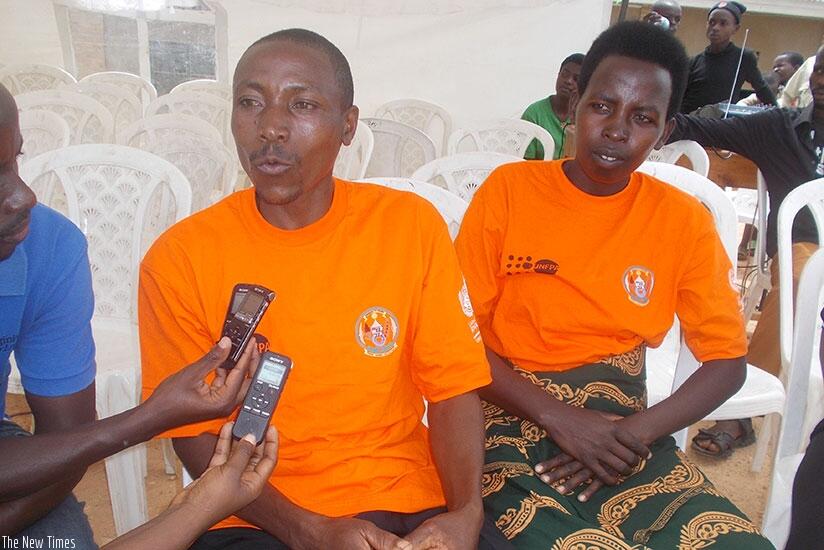Protogène Basabose and his wife Francine Mujawamariya opted for vasectomy after their third child.
He chose the family planning method to relieve his wife of stress resulting from continually seeking short-term contraception injections, he says.
“My wife was using short-time birth control methods and after years, I found she was spending too much time seeking such contraceptive services. I decided, with her consent, to go for vasectomy as an alternative to save time that she used to spend at the health centre,” Basabose said, adding that it is now seven years and he has not felt any side effect.
The couple from Muhanga District shared their testimony at Mata Health Centre in Muhanga during an event to mark the World Vasectomy Day.
The theme of the day was “World Contraception Day and Male involvement in Family Planning.”
“Most men are reluctant to engage in family planning. I would like to tell them not to worry, some tend to think that a man who uses such a method loses sexual vitality but it’s not the case,” Basabose assured the audience.
His wife, Mujawamariya, is happy with their decision, saying fears of unplanned pregnancies are no more. And, she adds, they can now sufficiently provide for their three children, guaranteeing for them a better future.
“We can’t fail to raise fees for our children; we ensure they have health insurance and we are able to feed them. It is easier to look after few children and give them the care that a parent owes a child,” Mujawamariya said.
What the numbers say
According to the Rwanda Demographic and Health Survey (RDHS) 2014-15, at least 19 per cent of married women have an unmet need for family planning services. Eleven per cent are in need of spacing and 8 per cent in need of limiting.
The survey says, at 53 per cent, more than half of married women are using contraceptives, the majority of them using artificial methods.
The methods most commonly used by married women are injections (24 per cent), pills (8 per cent), and implants (8 per cent).
Use of modern methods increased from 45 per cent in 2010 to 48 per cent in 2014/15.
The survey states that 3 per cent of women use traditional methods.
The study also shows that the public health sector remains the major provider of contraceptives whereby 91 per cent of modern contraceptive users obtain their contraception from a government source.
However, it states that 28 per cent of family planning users discontinue use of a method within a year.
Side effects and health concerns (34 per cent) are the main reason for stopping.
A case for contraception
Patrick Ndimubanzi, the state minister for public health and primary healthcare, said knowledge of family planning services contributes a lot to the reduction of maternal and child mortality, unwanted pregnancies, abortion and avoidance of sexually transmitted illnesses.
“Family planning helps parents in child spacing that also contributes to reduction of malnutrition and stunting among children,” he said.
Ndimubanzi said family planning services are now offered in more than 500 health centres in all districts of the country.
Men in family planning
Dr Anicet Nzabonimpa, in-charge of family planning at Rwanda Biomedical Centre, (RBC), said while many women use short-term methods, there is need to encourage men to opt for permanent methods, such as vasectomy.
Nzabonimpa cited two reasons men often fear to embrace long-term family planning; poor mindset and cultural perceptions which put family planning responsibilities solely on women’s shoulders.
“The Government is encouraging men to understand their role in family planning. This will save children and mothers’ lives,” Nzabonimpa said.
There are more family planning methods for women than men, contributing to the false perception that it’s a women’s issue.
“Today, we can’t say that family planning is for a man or a woman, it is instead for the family through consensus,” Nzabonimpa said.
Jozef Maerien, the UNFPA country representative, said family planning is essential to securing the well-being and autonomy of women by supporting the health development of communities.“Access to modern contraceptives saves lives, transforms women’s lives, and transforms families and communities too. Family planning is one of the best investments countries can make for women’s empowerment, gender equality and economic prosperity,” Maerien said.
Vasectomy is, without doubt, a hard sell. However, it remains a viable option in the quest to bring more men in family planning


